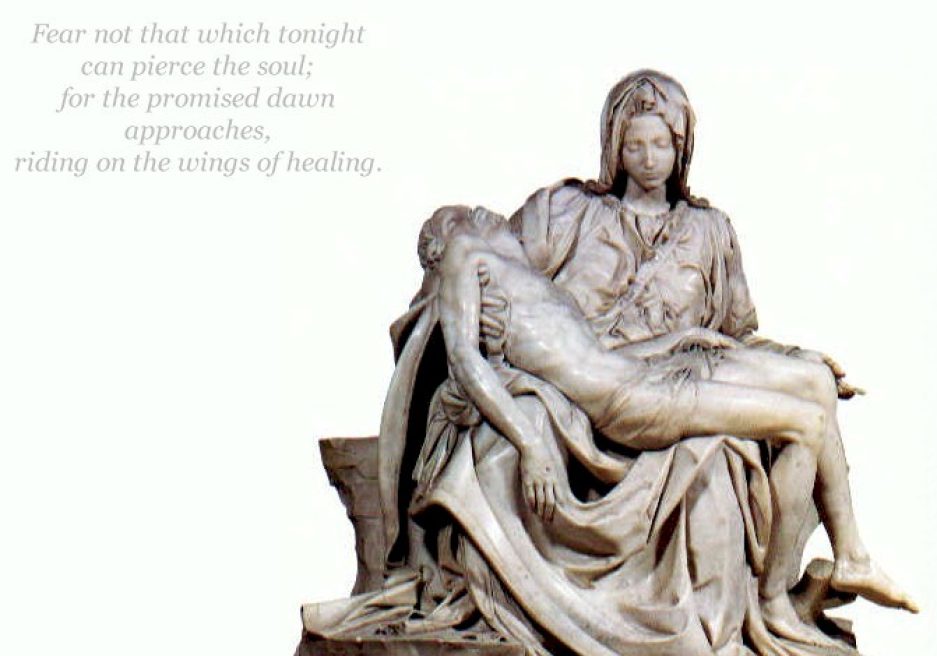Notice what the words in bold letters below say. Consider them in the context they’re in.
Philippians 3:7-11,
7 But whatever things were gain to me, those things I have counted as loss for the sake of Christ.
8 More than that, I count all things to be loss in view of the surpassing value of knowing Christ Jesus my Lord, for whom I have suffered the loss of all things, and count them but rubbish so that I may gain Christ,
9 and may be found in Him, not having a righteousness of my own derived from the Law, but that which is through faith in Christ, the righteousness which comes from God on the basis of faith,
10 that I may know Him and the power of His resurrection and the fellowship of His sufferings, being conformed to His death;
11 in order that I may attain to the resurrection from the dead.
Paul first says he gave up everything and counted it all as loss just to know Jesus. He then speaks of being found in Christ, that is, he found himself abiding in Christ by the grace of God, and this by faith. He continues saying that rather than having a righteousness of his own, he has the righteousness that comes from God on the basis of faith in Christ. This faith also allows him to know Christ and the power of His resurrection, as well as the fellowship of His sufferings.
Now consider this:
Acts 3:16,
16 “And on the basis of faith in His name, it is the name of Jesus which has strengthened this man whom you see and know; and the faith which comes through Him has given him this perfect health in the presence of you all.
The man at the temple gate received perfect health the same way Paul received righteousness, on the basis of faith in the name of Jesus.
James 2:18,
18 But someone may well say, “You have faith, and I have works; show me your faith without the works, and I will show you my faith by my works.”
19 You believe that God is one. You do well; the demons also believe, and shudder.
20 But are you willing to recognize, you foolish fellow, that faith without works is useless?
21 Was not Abraham our father justified by works, when he offered up Isaac his son on the altar?
22 You see that faith was working with his works, and as a result of the works, faith was perfected;
23 and the Scripture was fulfilled which says, “AND ABRAHAM BELIEVED GOD, AND IT WAS RECKONED TO HIM AS RIGHTEOUSNESS,” and he was called the friend of God.
24 You see that a man is justified by works, and not by faith alone.
Both Peter’s faith and Paul’s faith resulted in works. Peter’s faith in the name of Jesus was the basis for a crippled man to gain perfect health. Paul’s faith in the name of Jesus resulted in him having a righteousness which was from God through faith in the name of Jesus.
This righteousness was as real as the healing of the man at the temple gate. It was not simply imputed to him so that when God saw him in his sins He would see only Jesus. Paul gave up all to follow Jesus. Therefore, it was no longer Paul who lived, but Jesus who lived in him. Of course, God saw the righteousness of Christ when he looked at Paul, because Paul was filled with Christ and abode in Him.
The man at the temple gate could walk because he was healed by faith in Jesus, and Paul was righteous because by faith he abode in Jesus and Jesus in him.
There is no man righteous, no not one. But disciples of Christ are righteous because Jesus dwells in them. It is no longer they who live, but Christ who lives in them. They submit to their Father and learn discipline from the things which they suffer, that they may walk in the Spirit rather than the flesh. God sees Jesus in them because Jesus is in them. They abide in Him. And no one who abides in Him sins, 1 John 3:6.
I have just written about the chosen of God, not everyone who is called, for many are called, but few are chosen.
The blood of bulls and goats atoned for sins previously committed each year. The blood of Jesus atones for sins previously committed also (Romans 3:5). Beyond this, He made it possible to find a way of escape from every temptation common to man. He accomplished this by the giving of the Holy Spirit who leads us in truth, and comforts and helps us in all things.
Jesus is not only our sacrifice for sins, He is our Savior from sins. The sacrifice of animals just atoned for the sins of the last year; the blood of Jesus atones for all past sins and His resurrection resulted in the Holy Spirit being given to raise us up into a brand new life of righteousness and holiness in the Lord. If we should slip and sin, He is faithful to forgive us if we confess our sin, and cleanse us once again from all unrighteousness.
Jon David Banks, God’s most unworthy servant
Scripture quotations taken from the (NASB®) New American Standard Bible®, Copyright © 1960, 1971, 1977, 1995 by The Lockman Foundation. Used by permission. All rights reserved. www.lockman.org
